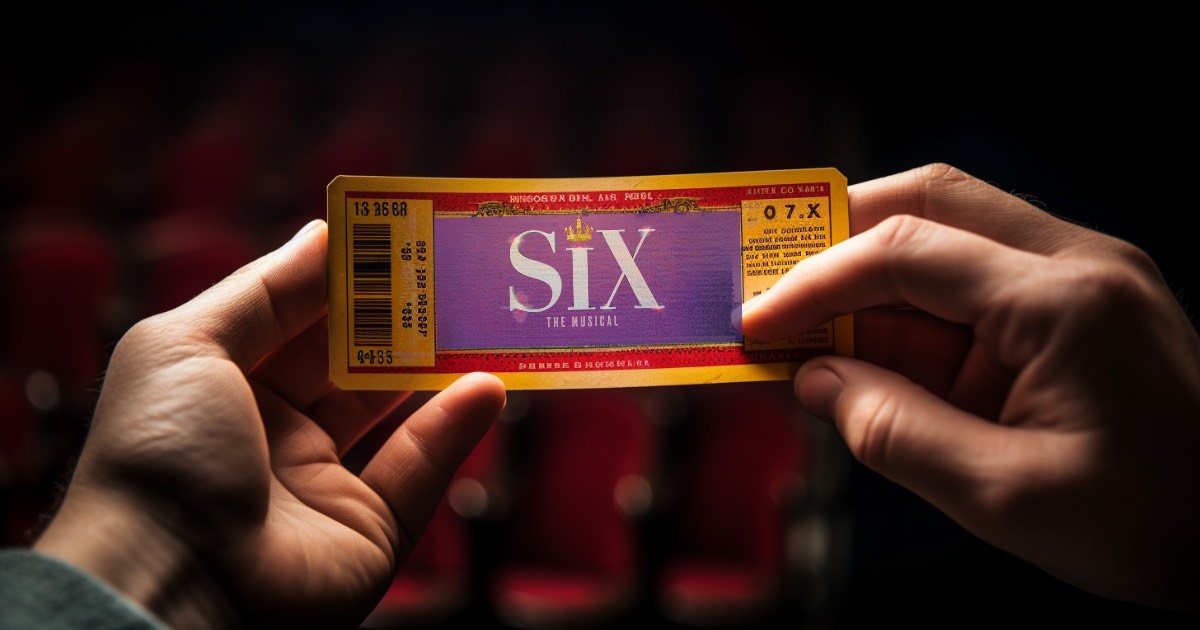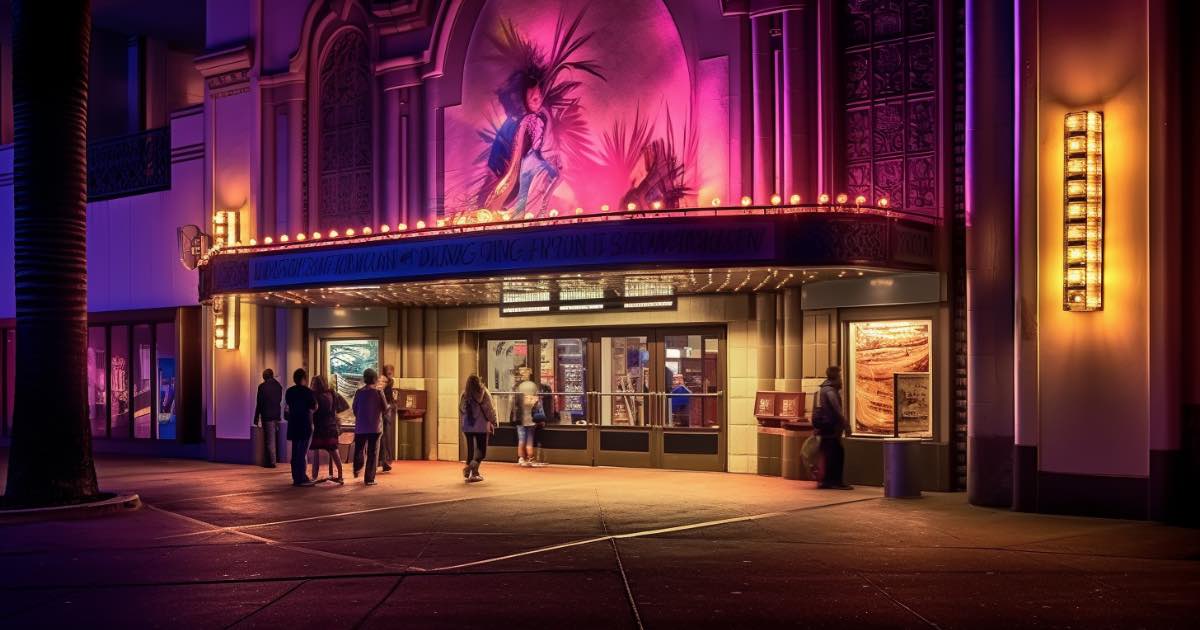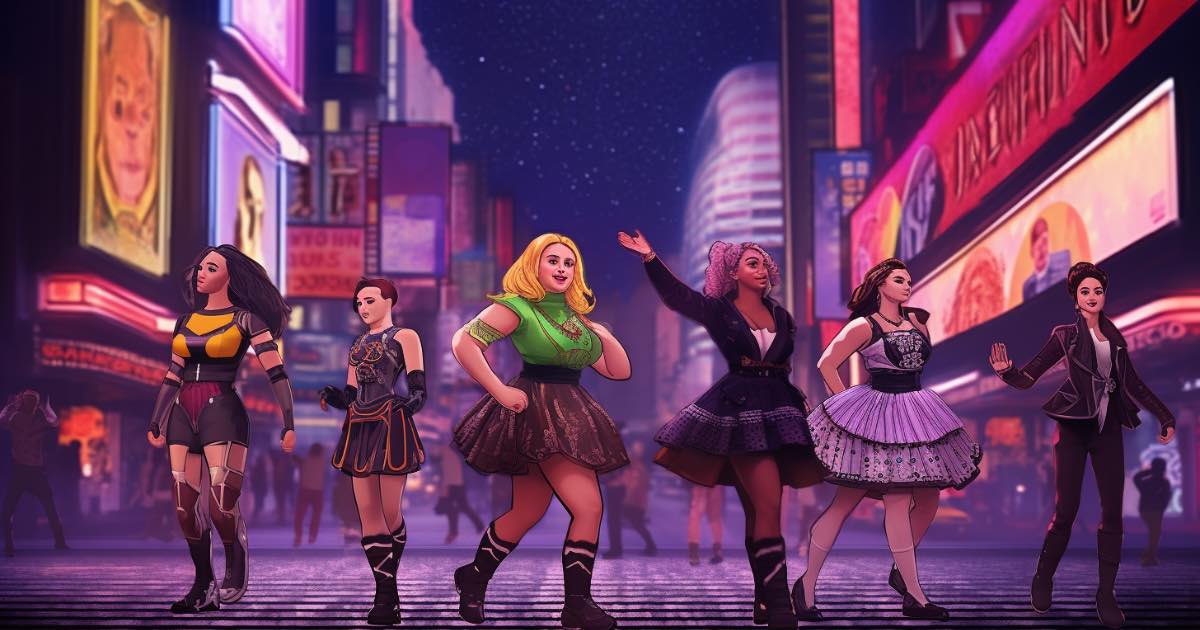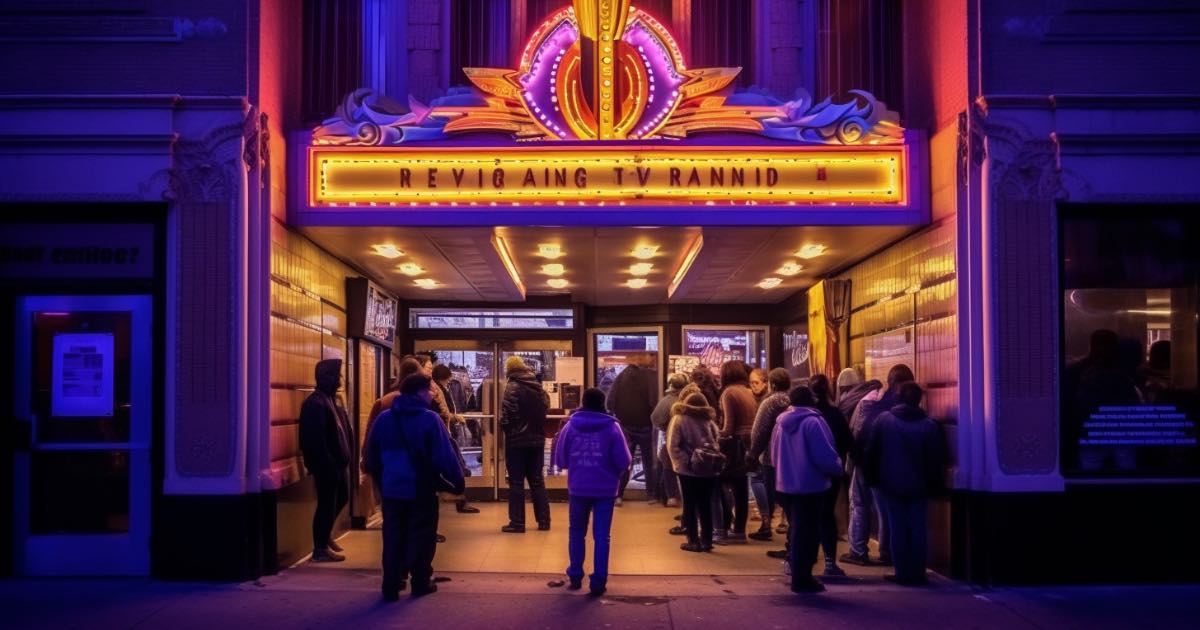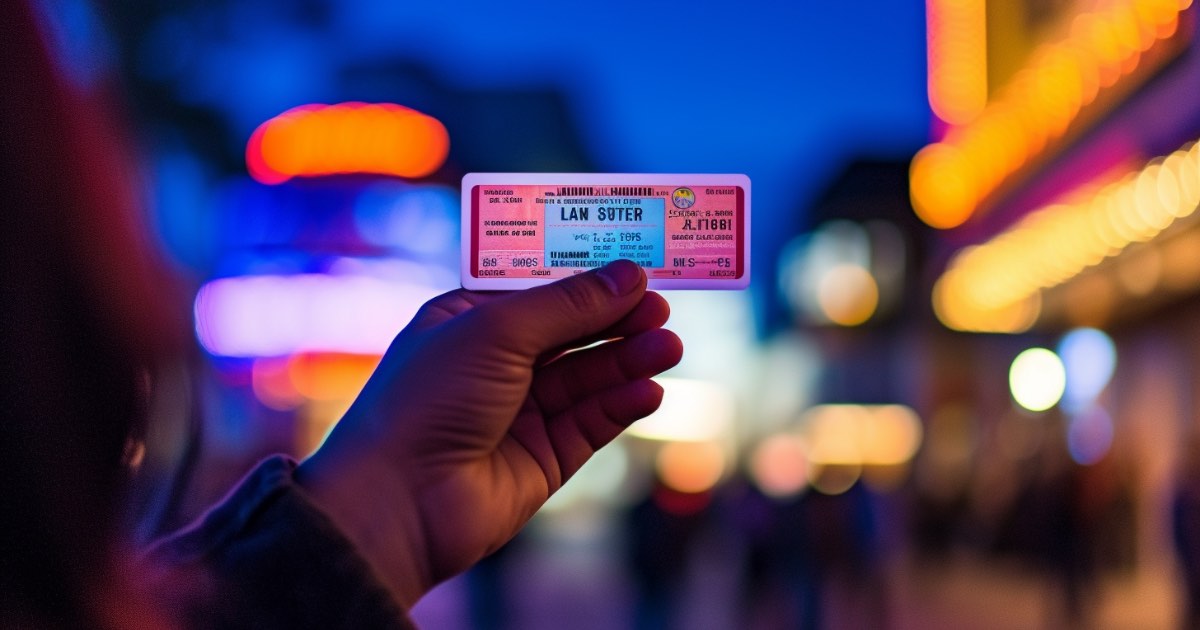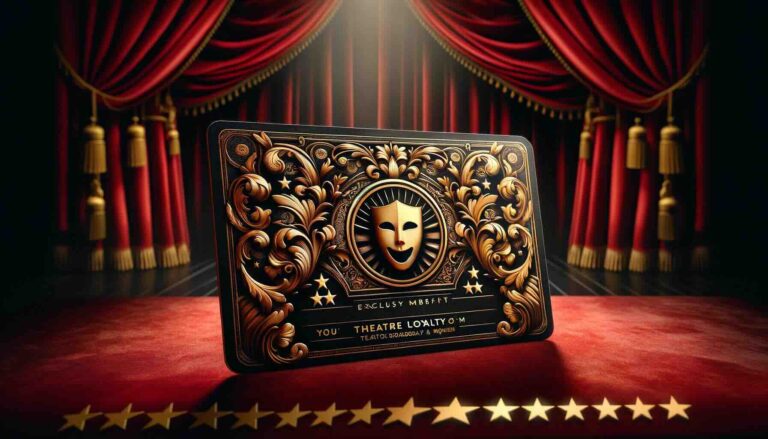With the roaring success of the musical “Six,” theater enthusiasts are clamoring for a seat to witness the spectacle. However, as the demand surges, so does the cunning craft of counterfeiters. The rise in ticket scams has become a dark cloud over the joy of attending live performances. But fear not! With a keen eye and a bit of knowledge, you can ensure that your ticket to the court of Henry VIII’s wives is genuine. This guide aims to arm you with the tools to differentiate between a royal invite and a mere jester’s trick.
Understanding the importance of ticket authenticity not only saves you from disappointment but also ensures that your hard-earned money doesn’t fall into the wrong hands. So, let’s dive deep and uncover the secrets to spotting fake Six tickets. 🕵️♂️
Why Do Scammers Create Fake Tickets?
At the heart of every scam lies the age-old motivator: money. 💰 With the skyrocketing popularity of “Six,” tickets have become a hot commodity, often selling out in mere minutes. This high demand coupled with limited availability creates a fertile ground for counterfeiters to weave their web of deceit.
But it’s not just about the money. The art of scamming is, for some, a game of cat and mouse, a test of wits. They revel in the thrill of outsmarting the system and the unsuspecting public. By selling fake tickets, they not only pocket the cash but also bask in the twisted satisfaction of having duped someone.
Moreover, the digital age has made it easier than ever to replicate tickets, with high-quality printers and sophisticated software at their fingertips. The anonymity provided by online platforms further shields these tricksters, making it a cinch to disappear into the ether once the deed is done. Unearth how to buy cheap Six tickets in a safe and foolproof manner.
However, as the saying goes, “Every cloud has a silver lining.” The very technology that aids these scammers also equips us with tools to thwart their efforts. By staying informed and vigilant, we can ensure that these fraudsters don’t have the last laugh.
Visual Signs of a Fake Ticket
While technology has made it easier for scammers to produce counterfeit tickets, it has also given genuine tickets certain features that are difficult to replicate. Knowing what to look for can be your first line of defense against being duped. Here are some visual cues to help you spot a fake “Six” ticket:
- Quality of Print: Genuine tickets are typically printed with high-resolution printers, ensuring sharp and clear graphics. If the ticket’s print looks fuzzy, pixelated, or of poor quality, be wary.
- Barcode: Every legitimate ticket has a unique barcode. If the barcode looks tampered with or doesn’t scan correctly, it’s a red flag. 🚩
- Watermarks: Some tickets come with watermarks that are visible only when held up to the light. Counterfeiters often miss this detail.
- Embossing: Some premium tickets or special editions might have embossed logos or text. If your ticket is supposed to have this feature but doesn’t, it might be a fake.
- Serial Numbers: Genuine tickets often have serial numbers that can be verified. If the number seems out of sequence or mismatched, tread with caution.
- Misspellings and Incorrect Information: Scammers can be careless. Look out for misspelled words, incorrect dates, or any other inconsistencies on the ticket.
Remember, trust your gut! If something feels off, it probably is. It’s always better to double-check than to regret later. And if you’re ever in doubt, compare your ticket with a verified one or reach out to the official ticketing agency for confirmation. After all, it’s better to be safe than sorry when it comes to enjoying the magic of “Six” on stage.
Digital Red Flags
In today’s digital age, scammers have taken their deceitful tactics online, making it even more crucial for ticket buyers to be vigilant. While a ticket might look the part physically, there are several digital warning signs that can help you identify a potential scam:
- Email Correspondence: Be wary of sellers who use generic email addresses or those that contain a jumble of letters and numbers. A legitimate seller or platform will typically have a professional email address associated with a recognized domain.
- Payment Methods: Scammers often push for payment methods that aren’t traceable, like wire transfers or gift cards. Always opt for secure payment methods like credit cards or trusted payment platforms.
- Too Good to Be True Prices: If a deal seems too good to be true, it probably is. Extremely discounted “Six” tickets might be tempting, but they’re also a huge red flag. 🚩
- Downloadable Tickets: Be cautious if a seller insists on sending you a ticket via email to print at home, especially if it’s a last-minute sale. It’s easy to send the same ticket to multiple buyers.
- Unsecured Websites: If you’re purchasing from a website, ensure it starts with “https://” and has a padlock symbol in the address bar. This indicates the site is secure. Avoid buying tickets from unsecured sites.
- Pressure Tactics: Scammers often create a sense of urgency, pressuring you to buy quickly. Take your time, do your research, and don’t let anyone rush your purchase.
Uncover the hidden treasure of Six tickets on Craigslist, ensuring a safe and protected transaction. It’s essential to keep your wits about you and do your due diligence. The digital realm offers convenience, but it also brings new challenges in ensuring ticket authenticity. Always cross-reference with official platforms or trusted friends, and remember: when in doubt, it’s okay to walk away. Better safe than singing the blues over a fake ticket!
Steps to Ensure Authenticity
While the digital age has brought about new challenges in ensuring ticket authenticity, it also offers tools and resources to help buyers verify their purchases. Here are some tried-and-true steps to ensure you’re holding a genuine “Six” ticket and not a dud:
- Buy Directly from Official Sources: Whenever possible, purchase your tickets directly from the theater’s box office or official ticketing partners. This is the surest way to guarantee authenticity.
- Check the Barcode: Most genuine tickets will have a unique barcode. Before the show, you can often verify this barcode on the official venue’s website or app. If it doesn’t match or isn’t recognized, that’s a red flag.
- Research the Seller: If you’re buying from a third-party, do a quick online search of their name or company. Look for reviews or any reports of scams. A reputable seller will often have a history of positive feedback.
- Ask for Proof of Purchase: A genuine seller should be able to provide some evidence of their original purchase, such as a receipt or confirmation email.
- Use Secure Payment Methods: As mentioned earlier, always opt for traceable payment methods. If a seller insists on cash or wire transfers, consider it a warning sign. 🚩
- Meet in Public: If you’re buying a ticket in person, arrange to meet in a public place. Not only is this safer, but scammers are less likely to agree to such terms.
- Trust Your Gut: Sometimes, the most reliable tool is your intuition. If something feels off or too good to be true, it’s okay to back out. There’ll always be another opportunity to catch “Six” on stage!
Remember, while the thrill of seeing “Six” live is unmatched, it’s essential to ensure you’re not left disappointed at the entrance. By following these steps and staying vigilant, you can enjoy the show with peace of mind, knowing you’ve done your part to ensure ticket authenticity.
What to Do If You Suspect a Fake Ticket
It’s a heart-sinking feeling: you’ve been looking forward to seeing “Six” for months, and now, as you examine your ticket closer, something seems amiss. 😟 But don’t despair just yet! Here’s a step-by-step guide on what to do if you suspect you’ve been handed a counterfeit ticket:
- Stay Calm: First and foremost, don’t panic. It’s essential to approach the situation with a clear head. Jumping to conclusions can sometimes lead to unnecessary stress.
- Double-Check: Before raising the alarm, ensure you’ve checked all the ticket’s details. Sometimes, minor printing errors can make a legitimate ticket appear suspicious.
- Contact the Seller: If you purchased the ticket from a third party, reach out to them. It’s possible there’s been a mix-up or misunderstanding. Give them a chance to explain or offer a solution.
- Verify with the Venue: Many theaters and venues have systems in place to verify ticket authenticity. Call the box office or visit in person with your ticket to get confirmation.
- Report the Scam: If you confirm the ticket is fake, it’s crucial to report the scam. This can help prevent others from falling for the same trick. Contact local law enforcement and provide as much detail as possible about the seller.
- Seek a Refund: If you used a credit card or a secure payment method, contact your bank or payment provider. They might be able to reverse the charge or offer guidance on getting your money back.
- Spread the Word: Share your experience on social media or local community boards. It can serve as a warning for others and might even help track down the scammer.
- Stay Vigilant for Next Time: Use this experience as a lesson. Familiarize yourself with the signs of fake tickets and always follow best practices when purchasing in the future. Remember, it’s better to be safe than sorry! 🎫🔍
Unveil the secrets of effortlessly refunding or exchanging Six tickets. While encountering a fake ticket can be disheartening, it’s essential to remember that for every scammer out there, there are countless genuine fans and sellers. By staying informed and vigilant, you can ensure your next “Six” experience is nothing short of spectacular!
Tips for Safe Purchasing
Whether you’re a seasoned theater-goer or a newbie eager to catch “Six” on stage, ensuring a safe ticket purchase is paramount. Here’s a compilation of top-notch tips to ensure you don’t just get a ticket, but a genuine one at that:
- Official Channels First: Always start by checking the official website or box office of the venue. They’re the most reliable sources for legitimate tickets.
- Research the Reseller: If you’re considering buying from a third-party reseller, do your homework. Look for reviews, ratings, and any red flags that might pop up in customer feedback.
- Secure Payment Methods: Use credit cards or trusted online payment platforms when purchasing. They often offer buyer protection, which can be a lifesaver if things go south.
- Steer Clear of Too-Good-to-Be-True Deals: If a deal sounds too good to be true, it probably is. Extremely discounted tickets can be a bait used by scammers.
- Meet in Public: If you’re buying from someone locally, arrange to meet in a public place. Not only is it safer, but scammers are less likely to agree to such arrangements.
- Ask for Proof: Don’t shy away from asking the seller for any proof of purchase or authenticity. A genuine seller won’t mind providing it.
- Stay Updated: Scams evolve, so it’s essential to stay updated on the latest tactics used by counterfeiters. Join theater forums or groups where members share their experiences.
- Trust Your Gut: Sometimes, it’s just a gut feeling that something’s off. If you feel uneasy about a purchase, it’s okay to walk away and find another option.
Arming yourself with knowledge and a sprinkle of caution can make all the difference in ensuring your “Six” experience starts on the right note. So, next time you’re on the hunt for tickets, keep these tips in mind and enjoy the show without a hitch!
Final Words
Buying tickets for a show as popular as “Six” can be thrilling, but it’s essential to tread with caution. In today’s digital age, counterfeit tickets have become a sophisticated business, making it challenging for the average buyer to distinguish between genuine and fake. However, by staying informed, vigilant, and following the guidelines shared in this article, you can ensure that your theater experience remains untainted. Remember, it’s not just about getting a ticket; it’s about ensuring that the ticket is genuine. So, equip yourself with knowledge, trust your instincts, and let the magic of “Six” sweep you off your feet without any hiccups.
